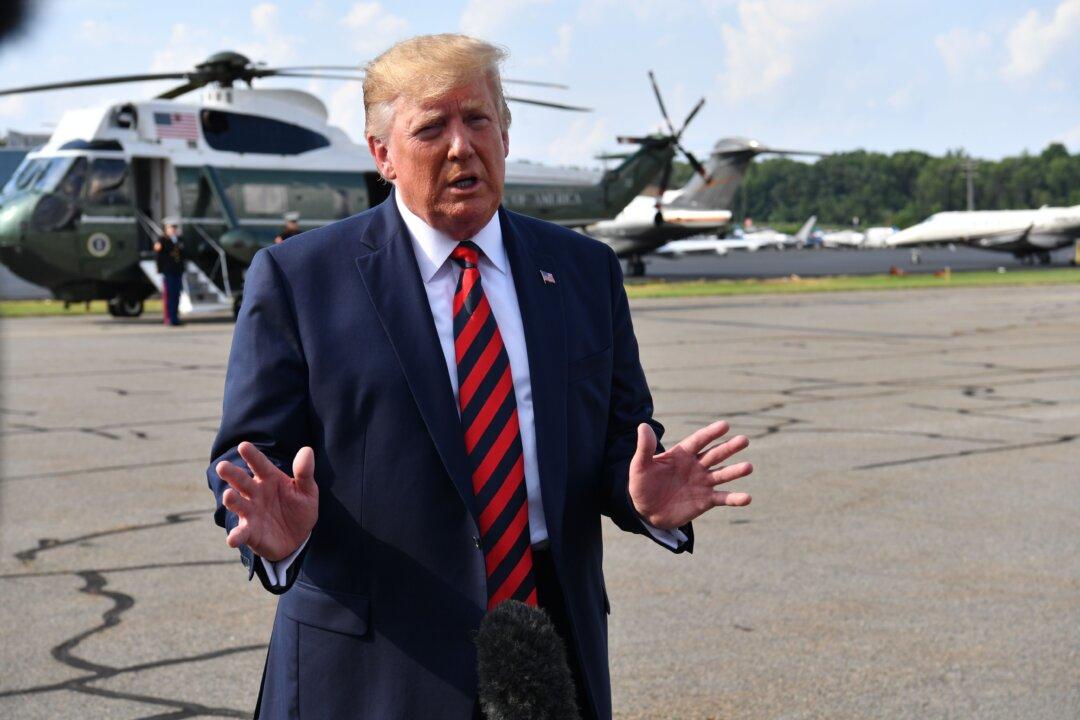President Donald Trump drew attention to research that shows the sway Google holds over election results, after a former engineer for the company came forward with a pile of internal documents that suggest political interference.
“Wow, Report Just Out! Google manipulated from 2.6 million to 16 million votes for Hillary Clinton in 2016 Election!” Trump wrote on Aug. 19. “This was put out by a Clinton supporter, not a Trump Supporter! Google should be sued. My victory was even bigger than thought!”





